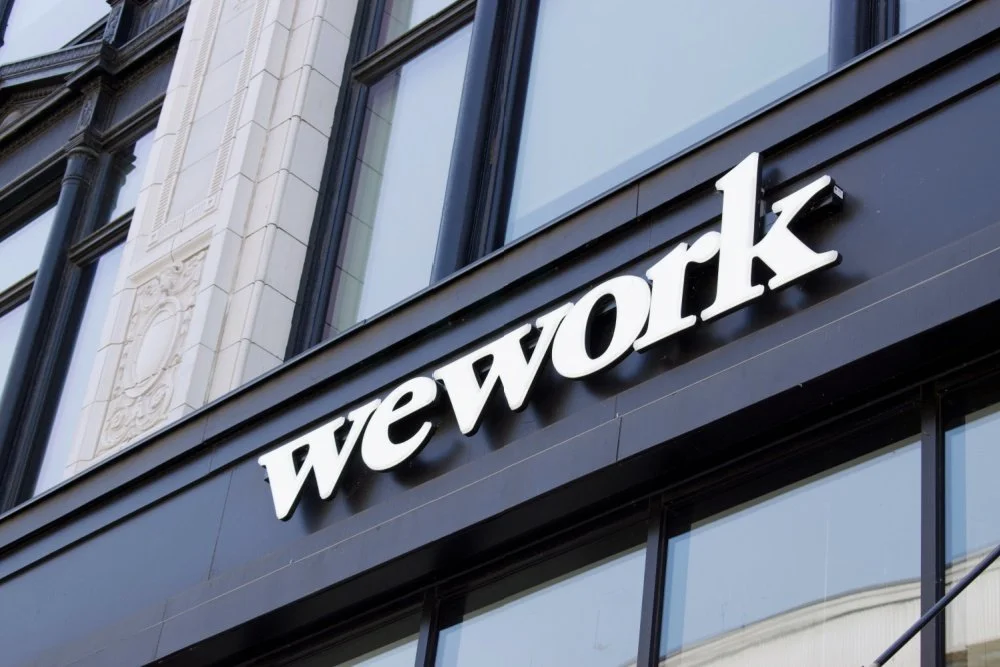Systemic Solutions: How a Venture Funder Wants to Invest at a Deeper Level
/The concept of “systems change” is in vogue right now, and for good reason. Frustrated by slow progress and even backsliding on the issues they care about, funders and their grantees often cite the need for more fundamental transformations. But what that means isn’t always clear.
For the venture philanthropy movement, the question of systemic change has been floating around for a while. When venture funders like New Profit emerged in the late 1990s, some critics dismissed the notion that funding models from the business world could yield bigger gains on entrenched problems and snickered at the messianic faith placed in individual social entrepreneurs. Twenty years later, as we’ve reported, New Profit and many of its peers have evolved substantially, and like a lot of other funders, have become more attuned to the structural barriers that can block upward mobility.
Along with Jeffrey Walker and Jeff Bildner, New Profit CEO Vanessa Kirsch authored a 2016 Harvard Business Review article titled “Why Social Ventures Need Systems Thinking.” They argued that the work of social entrepreneurs “is more complex than ever, and requires a set of tools and a framework designed to address the complexity inherent when innovations are integrated into existing systems like school districts, welfare agencies, health departments and corporate structures.”
In a related shift, New Profit’s idea of what a promising social entrepreneur looks like evolved to prioritize support for people who’ve lived closer to the problems and probably have a better idea of how to effect change than well-intentioned outsiders.
Now, through a new funding effort, New Profit is pursuing a fleshed-out approach to backing systemic change. Its Systemic Solutions Initiative recently announced an initial pair of investments and aims to support up to 10 more.
An Ambitious Model
When I spoke to Kim Syman, a managing partner at New Profit who co-leads the new initiative, she described how the organization came to this work. “Systems change is a buzzy term right now, and that can mean a lot more talk than action,” she said. Nevertheless, over the past 20 years, “the systemic nature of the challenges New Profit’s grantees have always been interested in has become clearer,” Syman said.
“What we’ve learned by scaling program innovations is that just demonstrating that something produces better programmatic results doesn’t change the context,” she said. “It doesn’t cause institutions and other leaders to create more space for these results.” What was needed, New Profit saw, was more emphasis on creating a better foundation for the traditional work of venture funding, with its heavy focus on measurement, accountability and evidence. While star organizations may look exciting—even revolutionary—on their own, betting on a few ace players isn’t enough. It’s important to fund an ecosystem of groups that, together, can achieve larger changes.
At a deeper level, the Systemic Solutions Initiative is looking to foster change on the level of interpersonal relationships and power dynamics, and to shift the “mental models” that people use to frame their work. According to John Kania, an executive-in-residence at New Profit who co-leads Systemic Solutions with Syman, change on those more implicit levels may be trickier, but it’s just as essential to the project of systems change as are more conventional efforts to shift policy, practices and the flow of resources.
This thinking tracks with ongoing efforts by some funders—particularly in the progressive space—to grapple with the internal workings of a social sector that too often mirrors the inequities it seeks to redress. Unless these dynamics can be changed, the argument goes, foundations and their grantees will have less impact than they might.
Investing From New Angles
So how is this grand theory of systems change playing out in grantmaking for New Profit’s latest initiative?
Syman and team chose two candidates to receive the initial Systemic Solutions investments: GirlTrek and the Health Initiative. Following the venture funding model, both will get $1.2 million in general support over three years, along with capacity building and strategic support from New Profit and its network.
Health is the relevant lens for both organizations. Their shared insight is that medical interventions are only one feature in the broader landscape of health outcomes, which are shaped by a range of social determinants that can only be addressed by working across silos with a larger vision of change.
The first, GirlTrek, received a shorter-term commitment from New Profit several years ago, and has grown rapidly ever since. GirlTrek is built on a simple idea: taking walks together can give black women a sense of agency over their own health, with benefits that carry over from individuals to entire communities. As GirlTrek sees it, by overcoming the long health odds that black women often face, these women can become exemplars to others, leveraging leadership roles many of them already hold in families and communities.
GirlTrek wants to apply that paradigm to a wider campaign of community empowerment in which participants advocate for investments in infrastructure, public safety, education—whatever they need to improve the neighborhoods they’re walking in. According to Syman, the GirlTrek movement is spreading organically through networks of black women and now boasts over 200,000 participants in cities across the country. The aim is 1 million.
It’s easy to see how GirlTrek operates at multiple levels of New Profit’s systemic change framework. By pairing group walks with training in organizing, it can help individuals change their mental models of what’s possible, connect with others to build solidarity, and act together to effect community change.
It’s harder to parse New Profit’s other Systemic Solutions investment, The Health Initiative. For one thing, it’s a new entity in a very early stage of development—although its leaders formerly ran Health Leads, another New Profit portfolio organization. While GirlTrek’s clear focus is on the grassroots, the Health Initiative will operate as a narrative change agent at the confluence of public and private healthcare institutions.
The Health Initiative’s mission will involve advocating for investments in the upstream determinants of health: factors like safe housing, nutritious food and stable employment. In that sense, it’s following in the path of Health Leads, which provides health services while taking into account the economic and social factors that perpetuate illness. That philosophy is increasingly popular among health philanthropies. The Robert Wood Johnson Foundation and the Kresge Foundation are two of its major proponents, but many health conversion foundations and corporate grantmakers have also embraced a focus on social determinants—as we have so often reported.
Toward a More Rigorous Model of Systems Change
New Profit hopes to make a couple more commitments as part of the Systemic Solutions Initiative this calendar year. If these first grantees are any indication, we’re likely to see a range of investments in both the activist grassroots and in higher-level conveners working with multiple stakeholders. Whether they’ll be able to promote meaningful change on the level of interpersonal relationships, power dynamics and mental models is still an open question. But in the case of GirlTrek, at least, some of that already seems to be taking place.
The challenge for New Profit is to reconcile the fuzzier impact of these systemic change investments with a traditional focus on measurable results. “There’s this idea of managing risk that can cause funders to fund what’s most familiar and measurable,” Syman said. “This work shouldn’t suggest that isn’t relevant, but it’s not complete. Funders need more good examples of what rigor and accountability will look like in the context of systems change.”
Despite its small size, venture philanthropy often plays a thought leadership role for the sector that may be a better gauge of its impact than grant numbers alone. And while initial critics of venture funding worried about business “colonizing” the nonprofit sector, New Profit’s Systemic Solutions work is one place where the reverse is happening: Progressive ideas are infusing a model drawn from capitalist practice. New Profit isn’t alone in that respect. Venture funding has become a more progressive and even overtly political movement these days. That’s worth keeping in mind as new funders with backgrounds in business seek out strategic ways to give.
Related:







































